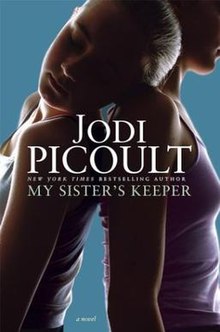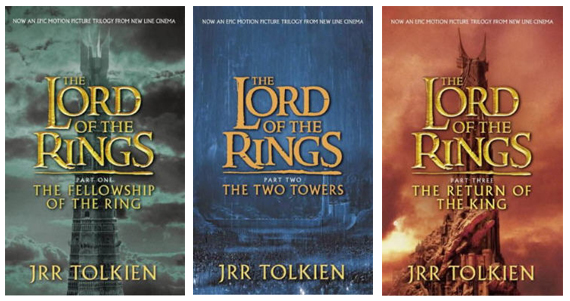I think about endings a lot. While the beginning of a story
needs to be intriguing to get the audience interested, a bad ending can ruin a
story. I’ve been thinking about endings a lot recently, due to a few factors.
One is reading some books with less-than-thrilling endings. Another is that, as
of writing this post, two shows that I’ve watched for years have ended in the last
week. While this is a book blog, and I mostly talk about book endings, some of
the ideas listed below also apply to shows.
Five Endings I Hate
5) It was all a dream: This category also includes
the story being a simulation or the final thoughts of a dying character. This
is pretty much the epitome of lazy storytelling, because it was all a dream,
like using time travel, means you don’t have to write an actual ending. It
means the story, and the stakes, weren’t real and that I shouldn’t have cared.
The only time this has worked is in The Wizard of Oz, and that only
worked because Dorothy knew she was dreaming the whole time, so it wasn’t some
last-minute subversion.
4) The rushed conclusion: If you spend hundreds of pages
building up the villain/main conflict and it gets resolved in less than five
pages (ten if the book is longer than 400 pages), you didn’t plan your story
well. Or you didn’t balance other elements as well as you could’ve.
3) Back to the Start: In most cases, the story/plot
is a journey. If the characters don’t change in some way, or they change but
end up in the same position as at the start of the story, its not emotionally
satisfying. One of the biggest complaints I heard about the Game of Thrones
ending was that characters, mainly Jon Snow, started and ended in the exact
same place, because it rendered their character arcs pointless. This doesn’t
just apply to characters either. If the village/country/world is being ruled by
a tyrant, don’t end the story with a different, but just as tyrannical, guy in
charge.
2) Tonal Dissonance: Call me crazy, but an ending
depends very heavily on the story that precedes it. If the novel has been
gritty and dark the whole time, it shouldn’t have a bright, clean “everything’s
all better now and everyone’s happy” ending. Similarly, if a book deals with
some pretty light topics, or it’s a general coming-of-age story, having
everyone die or something horrible happen at the end doesn’t make sense. Don’t have
a general fiction novel turn into a spy thriller in the last 20%.
1) Death. All of the DEATH: I’m going to say this,
and then get off my soapbox. (This applies more to shows than books, but
whatever). I’m a fan of redemption arcs, when done well. I know that sometimes,
characters need to die. However, just because a series is ending doesn’t mean
you have to kill the main character. “Hero sacrifices his/her life to save the
world” is good sometimes, but not others. It’s not the only type of sacrifice
that can take place. And, in stories that are about a character finding
redemption, killing them off cheapens that redemption.
Five Endings I Love
5) Foreshadowed: I love endings that are foreshadowed
enough to give me a hint at what’s going to happen, but not so much that I can
guess at the start what’s going to happen. The right amount of foreshadowing
makes it look like the author planned and outlined the story really well, and
upon editing, refined some of those ideas/plotpoints.
4) Clear Intent: Every book has a theme, or a message
the author is trying to put across. The trick is for the author to make it
clear what he or she is trying to say. Even if I didn’t like the way the book’s
main conflict is resolved, if it’s clear that the author had a specific intent
and the ending drives that intent home, I view it as a good ending. I don’t like
Animal Farm all that much, but Orwell’s closing sentences did exactly what
they were supposed to do and left the reader with the exact message as he was
trying to send.
3) Emotionally satisfying: Some stories have happy
endings. Some are more bittersweet. And some have dark endings. Which one works
and which one doesn’t depends on the story. A lot of series have these, a lot do
not. if a book has a central mystery, the mystery needs to be solved. If it’s
about overthrowing a dystopian government, government need to get overthrown.
As I mentioned above, you can’t give a dark story a happy, shiny ending. And if
at the end, I’m wondering why I wasted my time reading/watching this, it wasn’t
satisfying. As example of a conclusion that wasn't emotionally satisfying was the White Walker
storyline in Game of Thrones. While seeing Arya kill the Night King was
cool, it wasn’t emotionally satisfying because the Night King had been a major
part of Jon’s story, not Arya’s.
2) Can’t Go Back: Would you like to know what one of
my favorite film moments of all time is? It’s in Lord of the Rings: The
Return of the King, when Frodo explains to Sam why he’s sailing to the
Undying Lands. He says “We set out to save the Shire, Sam. And it has been
saved, but not for me.” I love this scene because its one of the few scenes
where a character acknowledges how much their journey has changed them. Frodo
saved the Shire, saved all of Middle Earth, and he returns home to find that he
doesn’t belong there anymore. Endings that acknowledge this, whether its to
this extent or a lesser one, will always outrank one’s where the hero
accomplishes their goal and goes home.
1) Not Really An End: I like stories that don’t wrap
every single thing up. This isn’t the same thing as an ambiguous ending, though,
where you either don’t know what the ending means or the major conflict felt unfinished.
I like being able to close the book, knowing how the main conflict was resolved,
but still wondering what happened next. It speaks to the idea that nothing
every really ends.
Those were some book (and TV) endings that I hated and some that I loved. What are your opinions on endings? Which ones do you dislike? What ending is your favorite?
Follow Me Elsewhere: Facebook \ Twitter \ Goodreads


























